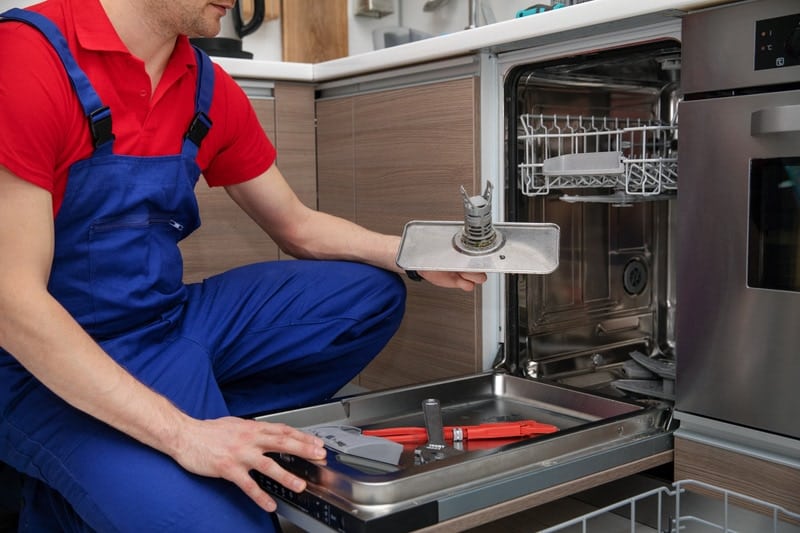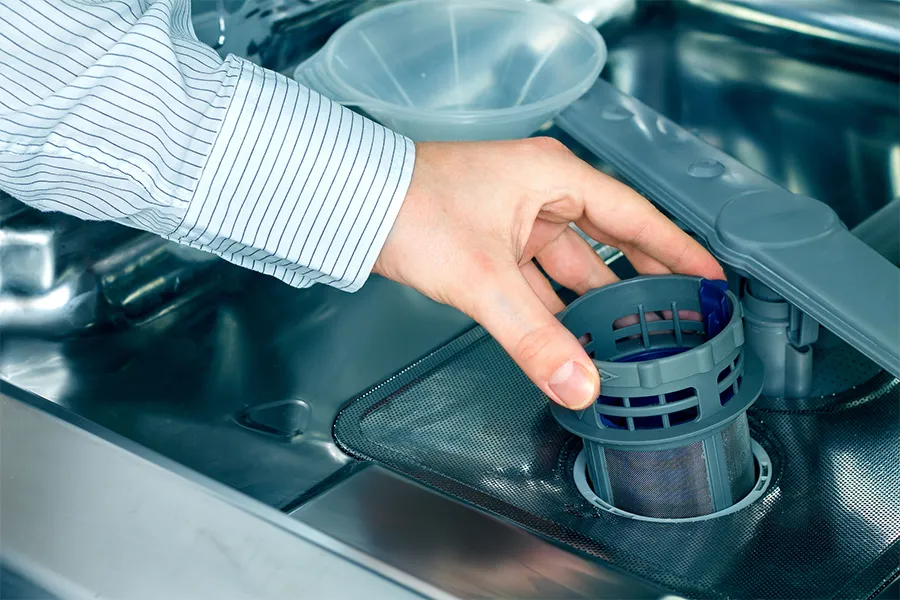What're your ideas regarding The Most Common Dishwasher Problems?

Having your dishwasher malfunction or breakdown can be a big deal and also create some pain in the house. Dish washers are machines that we use to tidy recipes and flatwares instantly to save us the anxiety of manually doing it.
Like every other machine that eases human initiative, dishwashers can break down and develop some fault at some point in time. There are numerous mistakes your dish washer can create, and also while a few of them can be resolved by replacing some components or repairing them, various other a lot more serious problems will require that you obtain a new dishwasher.
This write-up will certainly identify a couple of typical faults your dish washer might create to prevent its total performance and just how these mistakes can be fixed.
Typical Faults
Common dish washer faults can vary from minor to significant ones. Depending upon the level, you will either require the solutions of professional plumbing professionals to take care of or replace it.
Several of the most usual faults consist of:
Leaking Dishwasher
This is probably the most day-to-day dishwashing machine trouble, as well as the good news is that it is simple to identify. Leakages occur as a result of several factors, and also the leaks can ruin your kitchen. Typical causes of dish washer leaks consist of;
Bad-Smelling Dishwasher
This is one more typical dish washer trouble, and it is primarily caused by food debris or grease remaining in the equipment. In this instance, look for these particles, take them out as well as do the meals with no recipes inside the machine. Wash the filter thoroughly. That will help remove the poor scent. Ensure that you eliminate every food fragment from your dishes prior to moving it to the machine in the future.
Failure to Drain pipes
In some cases you might see a large amount of water left in your bathtub after a wash. That is probably a drainage trouble. You can either check the drainpipe tube for damages or obstructions. When unsure, speak to a professional to have it examined and repaired.
Does unclean effectively
If your recipes and also cutleries come out of the dishwashing machine and also still look unclean or dirty, your spray arms might be a trouble. In many cases, the spray arms can get clogged, as well as it will certainly call for a fast tidy or a replacement to work efficiently again.
Verdict
Some of these common dishwashing machine faults can be repaired easily at home, but sometimes, the faults could be massive as well as might need the interest of professionals. If you live in Rochester, Syracuse, and various other parts of America, allowed the specialists appropriately identify what could be wrong with your dishwasher and proffer a remedy.
We likewise install dishwashing machines if you just purchased a new one or intend to change your own. With our many years of experience in the industry, we make certain to offer you the very best possible services.
7 COMMON PROBLEMS THAT LEAD TO DISHWASHER REPAIR OR REPLACEMENT
Your Dishwasher is Leaking
As with a leaking clothes washer, there are many potential reasons why your dishwasher is regularly leaking. Among other problems, your leaking dishwasher may have:
A damaged drainage hose A faulty pump and/or pump seal A bad door seal (this is likely as dishwashers age since the seals become brittle) Overloading can also be the cause of occasional leaking, so it’s wise to follow your dishwasher manufacturer’s advice on how to load plates, utensils, and larger items like pots and pans. You can also look for information on how to properly load your dishwasher online. This is a subject that many people have opinions about, and there are tons of dishwasher loading tutorials available, believe it or not!
You Have Dirty Dishes Even After the Dishwasher Has Run
This is another problem that can be caused by overloading your dishwasher, though you may also be using the wrong detergent for your particular dishwasher. This is easy enough to do, as there are lots of different dishwasher detergent formulations for sale—powders, gels, and dissolving tablets.
Check your dishwasher’s manual for more information or visit the manufacturer’s website for help choosing the detergent type that works best with your particular appliance. All the best dishwasher brands should offer support and troubleshooting advice on their websites.
Unfortunately, sometimes more serious problems—like damage to circuitry or electronic control components—can be the cause of your dishes not getting clean. While relatively uncommon, power surges can damage your dishwasher’s electronics, which can prevent cycles from fully running. If your dishwasher has an electronic display of any kind, it may show error codes for incomplete cycles. You’ll need to contact a reliable dishwasher repair resource for help with this kind of problem.
Your Dishwasher is Not Fully Draining
This problem is often due to clogs in the drainage system of your dishwasher. Improper drainage can create huge messes, like damaging leaks and bacterial growth inside and outside of your dishwasher. Some dishwashers have self-serviceable filter components that should be cleaned out regularly to prevent clogging.
However, your dishwasher could also have more significant problems with its drain pump or other components. As we discussed above, damaged circuitry can prevent cycles from running or advancing properly, and that could be the culprit in this case, as well. It’s best to call an appliance expert for help with dishwasher repair due to drainage failure.
Your Dishwasher Won’t Turn On
A dishwasher that won’t turn on doesn’t necessarily equal a “dead” dishwasher. You could have a simple blown fuse or tripped breaker affecting your dishwasher’s power supply. Check to be sure your dishwasher is receiving the power it needs to run.
Another common issue that will prevent your dishwasher from starting up is a faulty door latch. If your dishwasher can’t close properly—or the electronic control system “thinks” it’s not closing properly—the appliance won’t start.
Your Dishwasher Has Water Fill Problems
Another issue that is sometimes caused by damaged circuitry and cycles that aren’t running or advancing correctly, water fill problems can be tricky to troubleshoot. If your dishwasher is not filling at all—or won’t stop filling as it operates—it could be due to a faulty float or float switch, or a water inlet valve problem, too. And these issues are best addressed by dishwasher repair professionals.
https://www.kaappliance.com/blog/7-common-problems-that-lead-to-dishwasher-repair-or-replacement

Do you like reading about Common Dishwasher Problems? Place a remark down below. We'd be glad to know your thinking about this blog post. Hoping to see you back again before long. I beg you take the opportunity to distribute this blog if you enjoyed it. I cherish reading our article about The Most Common Dishwasher Problems.
Schedule And Pricing